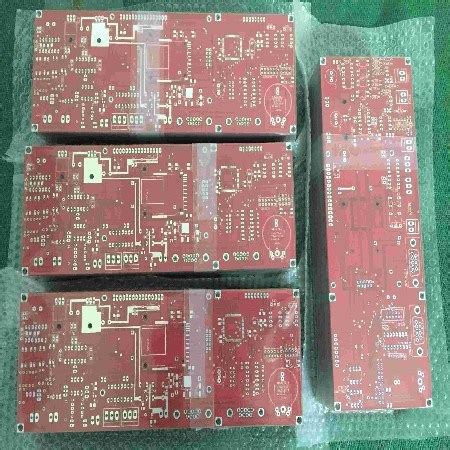What is a PCB Turnkey Service?
A PCB (Printed Circuit Board) turnkey service is a comprehensive solution provided by electronics manufacturing companies that encompasses the entire process of PCB production, from design to final assembly. This service includes PCB design, prototyping, fabrication, component sourcing, and assembly, all under one roof. By opting for a turnkey service, clients can streamline their PCB manufacturing process, reduce costs, and minimize the risk of errors.
Advantages of PCB Turnkey Services
- Time-saving: By outsourcing the entire PCB manufacturing process to a single provider, clients can save time and focus on their core competencies.
- Cost-effective: Turnkey services often offer competitive pricing due to economies of scale and optimized processes.
- Quality control: Reputable turnkey service providers adhere to strict quality control measures, ensuring high-quality end products.
- Expertise: PCB turnkey service providers have experienced professionals who can guide clients through the entire manufacturing process.
Factors to Consider When Choosing a PCB Turnkey Service Provider
1. Technical Capabilities
When selecting a PCB turnkey service provider, it is essential to assess their technical capabilities. This includes their ability to handle various PCB types, such as:
- Single-sided PCBs
- Double-sided PCBs
- Multi-layered PCBs
- Flexible PCBs
- Rigid-flex PCBs
Additionally, consider the manufacturer’s experience with different PCB materials, such as FR-4, high-frequency laminates, and metal core PCBs.
2. Manufacturing Capacity and Lead Times
Evaluate the manufacturer’s production capacity and their ability to meet your volume requirements. Inquire about their typical lead times for prototyping and mass production. A manufacturer with a large production capacity and shorter lead times can help you bring your products to market faster.
3. Quality Control and Certifications
Quality control is crucial in PCB manufacturing. Look for a turnkey service provider with a robust quality management system and relevant certifications, such as:
- ISO 9001 (Quality Management Systems)
- IPC Standards (IPC-A-600, IPC-A-610, IPC-6012)
- UL (Underwriters Laboratories)
- RoHS (Restriction of Hazardous Substances)
These certifications demonstrate the manufacturer’s commitment to quality and compliance with industry standards.
4. Design Support and Value-Added Services
A comprehensive PCB turnkey service should offer design support to help optimize your PCB layout for manufacturability and functionality. Some value-added services to look for include:
- Design for Manufacturing (DFM) analysis
- Component selection and sourcing
- PCB assembly (PCBA) services
- Functional testing and validation
- Box build and final product assembly
These services can help streamline your product development process and reduce overall costs.
5. Communication and Customer Support
Effective communication is essential when working with a PCB turnkey service provider. Look for a manufacturer that assigns a dedicated project manager to your account, ensuring smooth communication and timely updates. Additionally, evaluate their customer support services, including technical assistance, order tracking, and issue resolution.
6. Pricing and Cost Structure
While cost is an important consideration, it should not be the sole deciding factor when choosing a PCB turnkey service provider. Low prices may indicate compromises in quality or service. Instead, look for a manufacturer that offers competitive pricing along with high-quality services and reliable support.
Consider the manufacturer’s cost structure, including:
- NRE (Non-Recurring Engineering) fees
- Prototype and production pricing
- Minimum order quantities (MOQs)
- Shipping and logistics costs
Request quotes from multiple manufacturers and compare their offerings to find the best value for your specific requirements.
PCB Turnkey Service Provider Comparison
To help you make an informed decision, here is a comparison of some leading PCB turnkey service providers:
| Manufacturer | Technical Capabilities | Lead Times | Certifications | Design Support | Pricing |
|---|---|---|---|---|---|
| PCBWay | Comprehensive | Short | ISO, UL, RoHS | Extensive | Competitive |
| JLCPCB | Comprehensive | Short | ISO, UL, RoHS | Extensive | Low |
| PCBCart | Comprehensive | Medium | ISO, UL, RoHS | Moderate | Competitive |
| SeeedStudio | Comprehensive | Medium | ISO, UL, RoHS | Extensive | Competitive |
| EuroCircuits | Comprehensive | Medium | ISO, UL, RoHS | Moderate | High |
Note: This table is for illustrative purposes only and may not reflect the most up-to-date information. Always verify the current capabilities and offerings of each manufacturer.

Case Studies
Case Study 1: Automotive Electronics Manufacturer
An automotive electronics manufacturer required a reliable PCB turnkey service provider to produce high-quality, multi-layered PCBs for their next-generation vehicle infotainment systems. They chose PCBWay due to their extensive experience in automotive electronics, comprehensive technical capabilities, and robust quality control processes. PCBWay’s design support team worked closely with the manufacturer to optimize the PCB layout, ensuring optimal performance and reliability. The partnership resulted in the successful launch of the new infotainment system, meeting stringent automotive industry standards.
Case Study 2: Medical Device Startup
A medical device startup needed a cost-effective and efficient PCB turnkey service provider to develop and manufacture the PCBs for their innovative wearable health monitoring device. They selected JLCPCB for their competitive pricing, quick turnaround times, and experience in medical device manufacturing. JLCPCB provided comprehensive design support, helping the startup to refine their PCB design and select the most suitable components. The collaboration enabled the startup to bring their product to market quickly and at a lower cost, giving them a competitive edge in the highly regulated medical device industry.
Frequently Asked Questions (FAQ)
-
What is the difference between a PCB Prototype and a production run?
A PCB prototype is a small batch of boards used for testing and validation before mass production. Production runs involve manufacturing larger quantities of PCBs based on the finalized design. -
How long does it typically take to receive PCB prototypes?
Lead times for PCB prototypes vary depending on the manufacturer and the complexity of the design. Some manufacturers offer quick-turn prototyping services, delivering prototypes within 24-72 hours. -
What is the minimum order quantity (MOQ) for PCB production?
MOQs for PCB production vary among manufacturers. Some offer low MOQs, even as low as one piece, while others may require higher minimum quantities for cost-effectiveness. -
Can I provide my own components for PCB assembly?
Yes, most PCB turnkey service providers offer consignment services, allowing clients to provide their own components for assembly. However, the manufacturer may need to verify the quality and suitability of the provided components. -
How can I ensure the quality of the PCBs produced by a turnkey service provider?
To ensure quality, look for manufacturers with relevant certifications (e.g., ISO, IPC, UL) and a robust quality management system. Additionally, request references, review customer testimonials, and consider ordering a small batch of prototypes to assess the quality firsthand.
Conclusion
Choosing the best PCB turnkey service provider is crucial for the success of your electronics projects. By considering factors such as technical capabilities, manufacturing capacity, quality control, design support, communication, and pricing, you can select a manufacturer that aligns with your specific requirements.
When evaluating potential providers, take the time to assess their track record, industry certifications, and customer reviews. Don’t hesitate to ask questions and request references to gain a better understanding of their capabilities and level of service.
Remember, a reliable PCB turnkey service provider can be a long-term partner in your product development journey, helping you bring innovative, high-quality products to market efficiently and cost-effectively.
